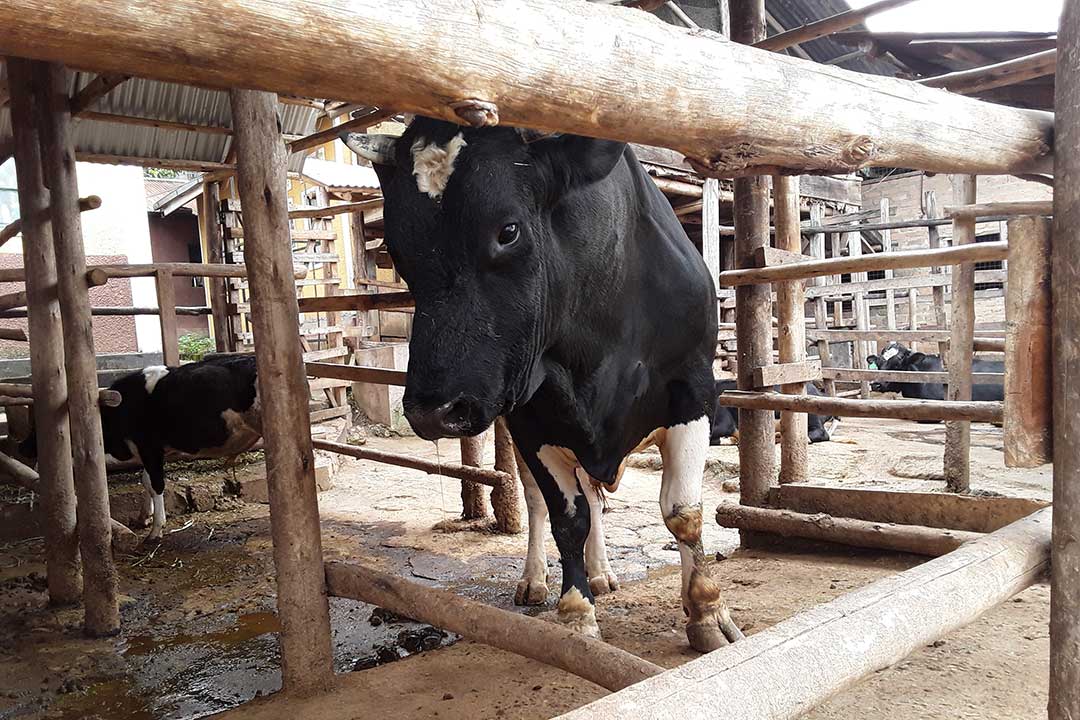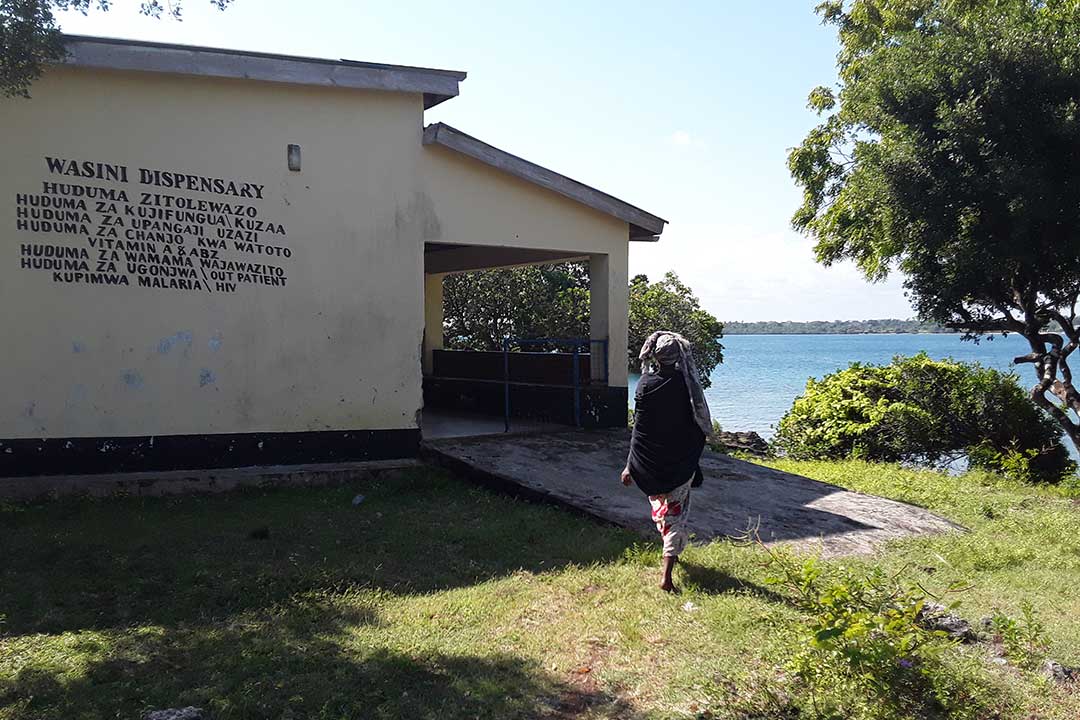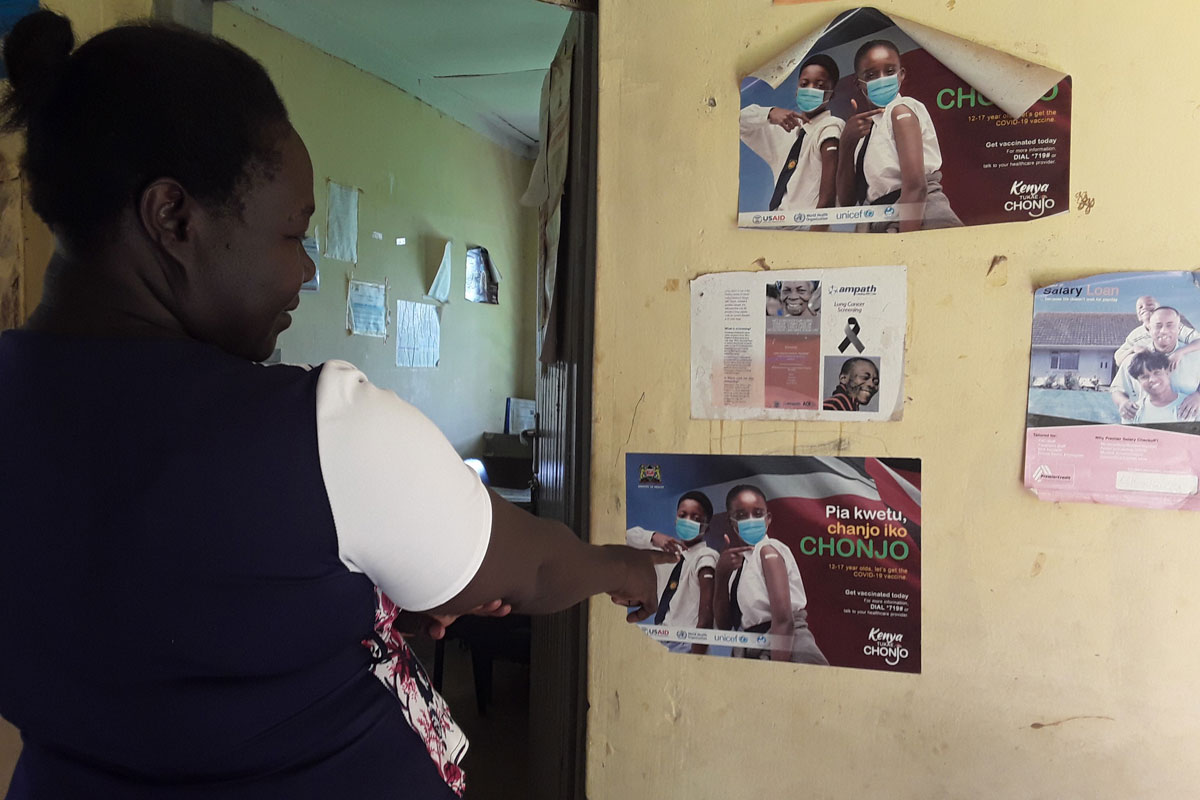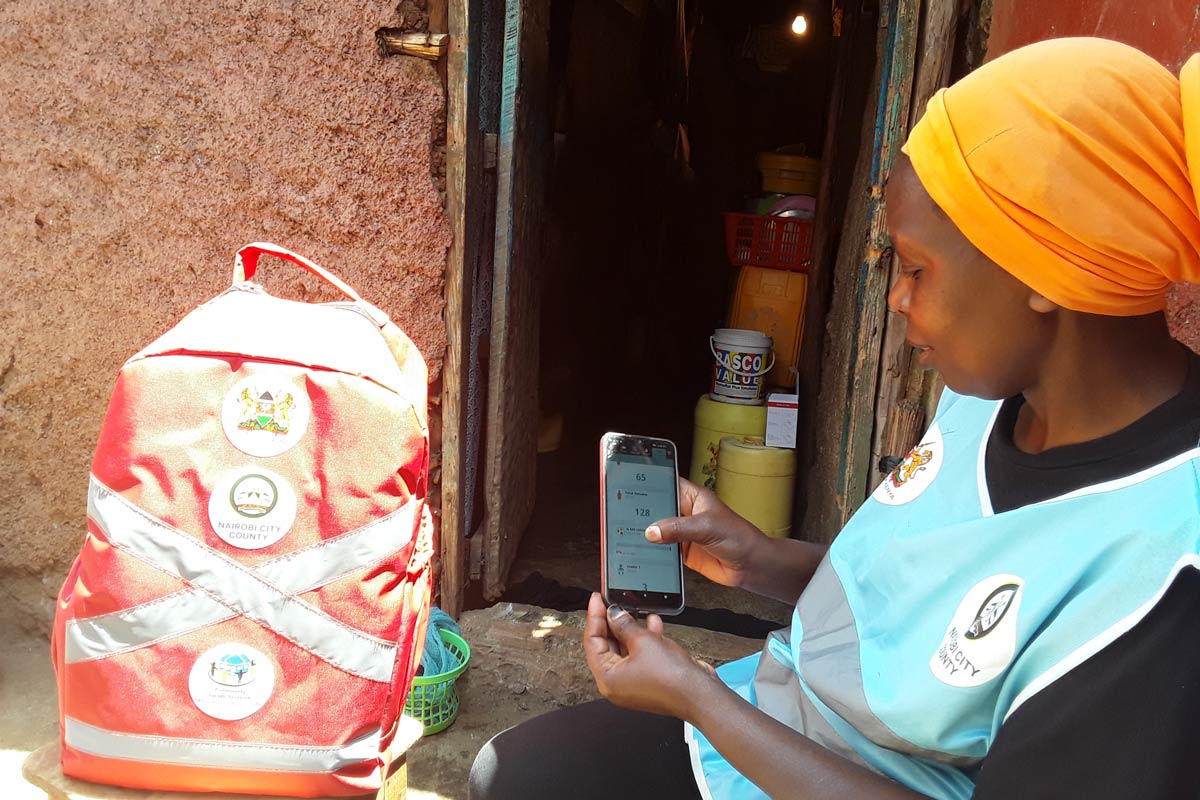Reaching zero-dose children with solar power in Kenya
Makueni County health facilities leverage a solar powered freezer to reach the hard-to-reach child population.
- 14 December 2022
- 4 min read
- by Joyce Chimbi
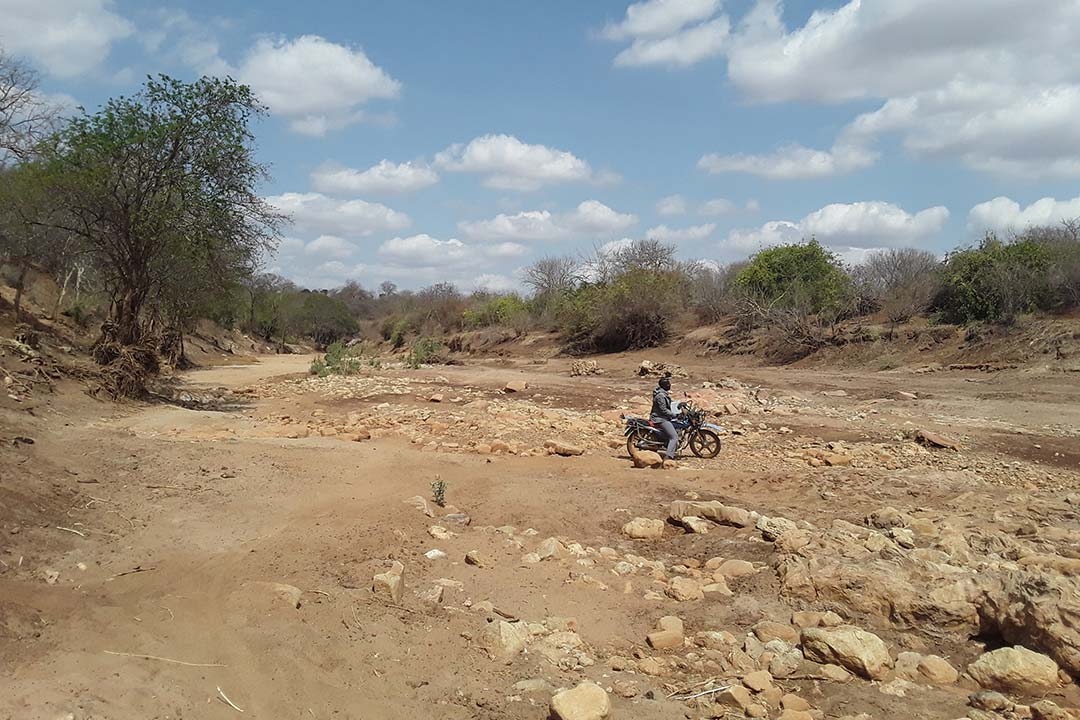
Wanza Kioko recounts a terrifying day in late 2018. Home alone in Yiuma Mavui village, Makueni County, Kenya, she went into labour. She could not deliver her baby at the nearest hospital, which was at least 28km away from her home, as there is no ambulance serving the village. The only means of transportation are motorcycle taxis (boda boda), bicycles or walking.
“Once inside the carrier box, the vaccines are only viable for six hours. You have to return unused vaccines back to storage at the sub-county hospital before six hours pass or they go to waste. Vaccine wastage is not taken lightly by the ministry.”
“Many families here cannot afford three meals a day. A round trip to Makindu hospital using a boda boda is KES 1,200 [US$ 9.77]. I called my neighbour and, by the time, she arrived, I had already given birth to the baby,” Kioko says.
Kioko could also not go to the nearby Usungu dispensary because, as Antony Matali, the nurse in-charge, explains, “All new mothers must be injected with oxytocin immediately after birth to prevent postpartum haemorrhage, which accounts for at least 25% of all maternal deaths in Kenya. The village is about 22km off the electricity grid. Without a fridge or freezer, the health facility cannot stock oxytocin, and therefore cannot provide labour and delivery services.”
Francis Muli, nurse in-charge of Kamboo health centre, an estimated 17km from Makindu hospital, speaks of the implication of a home delivery on immunisation.
“There are vaccine doses that must be administered strictly at birth or within two weeks of a baby’s life. This includes critical doses of diphtheria, tetanus and pertussis-containing vaccine,” he says.
“When mothers deliver at home, their baby’s first encounter with a health facility is when they fall ill. This could be many months after birth and they therefore miss out on critical doses.”
The solar-powered freezer does not require much maintenance, only a wipe down of the solar panels once a month to remove dust, and yet its impact on the three Makueni County villages has been immense.
Children who do not receive a single dose of diphtheria, tetanus and pertussis-containing vaccine are called zero-dose. Muli says that zero-dose children account for nearly half of all vaccine preventable deaths from illnesses such as diarrhoea and pneumonia.
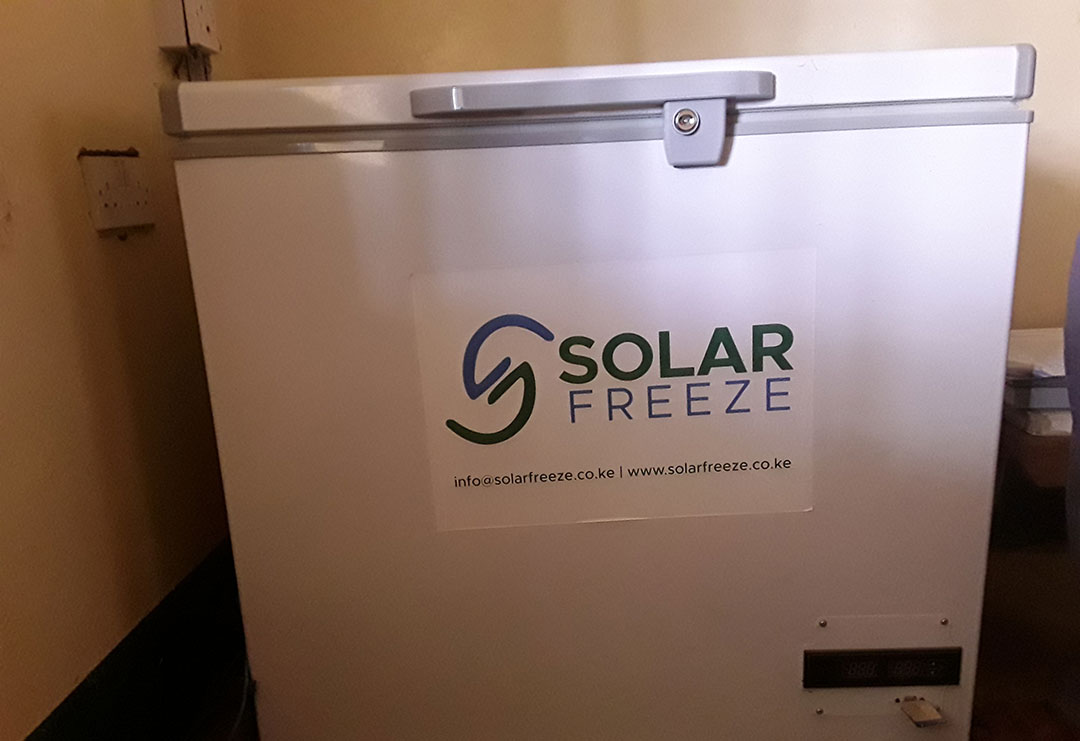
Photo: Joyce Chimbi
For many years, the risk of preventable death remained significant for children in the three neighbouring villages of Kamboo, Yiuma Mavui and Yindalani.
Kamboo and Yindalani villages are also outside the nearest electricity grid. As such, the Kamboo health centre and the Usungu and Ndalani dispensaries, located across the three villages, have struggled to provide immunisation services for lack of cold chain capacity.
Have you read?
“Twice a week for many years, Matali and I would report to Makindu sub-county hospital to collect vaccines and transport them to Usungu and Ndalani dispensaries in a vaccine carrier box which can hold as many as 500 doses of various vaccines,” says Benson Musyoka, nurse in-charge of Ndalani dispensary.
“Once inside the carrier box, the vaccines are only viable for six hours. You have to return unused vaccines back to storage at the sub-county hospital before six hours pass or they go to waste. Vaccine wastage is not taken lightly by the ministry.”
As a result, Musyoka says that all three health facilities could barely reach immunisation coverage of 25% – far below the 90% target set by Kenya’s Ministry of Health. At Usungu dispensary, reaching one baby a month was an uphill task.
This struggle persisted until February 2019 when Green Life Energy, a private company that specialises in environment-friendly products donated a solar powered freezer to Kamboo health centre.
Working together as a team, Usungu and Ndalani dispensaries begun to store their vaccines at Kamboo health centre, reducing the travel distance to and from Makindu hospital to collect and return vaccines from nearly 96km to just over 30km.
Kamboo health centre has now reached an immunisation coverage rate of 95%, with pregnant mothers in Yindalani and Usungu villages strongly encouraged to give birth at Kamboo health centre.
In addition, both Ndalani and Usungu dispensaries increased immunisation coverage from less than 25% to over 50%.
The solar-powered freezer does not require much maintenance, only a wipe down of the solar panels once a month to remove dust, and yet its impact on the three Makueni County villages has been immense.
